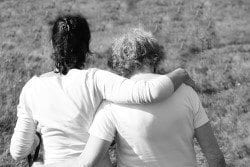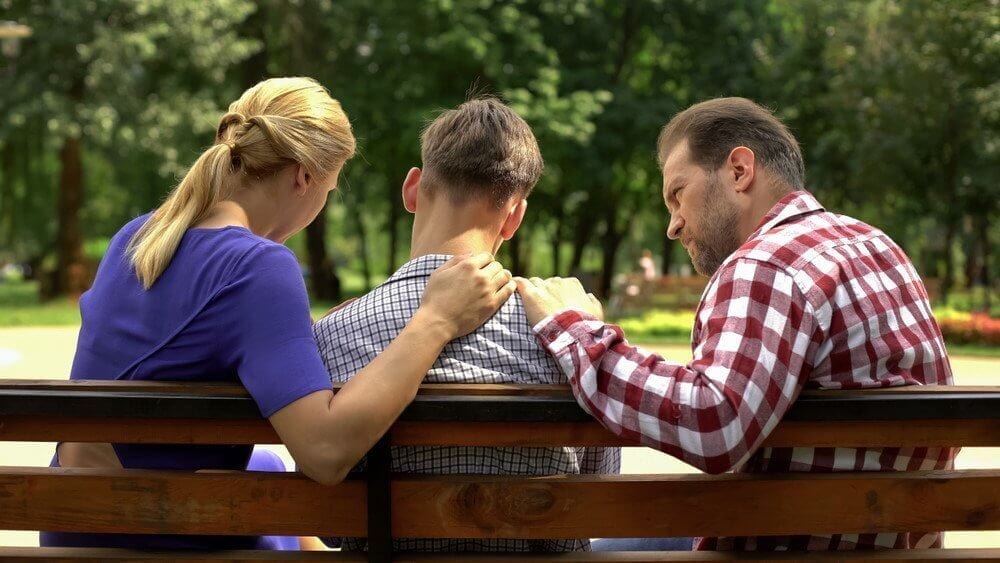While some consider substance use disorder as a personal experience, it is crucial to take into account the other people directly affected – the family. In more recent years, dependency on drugs and alcohol has been studied and well documented as a family disease. The addict, as well as his or her family, friends, and loved ones, are all suffering in profound and traumatic ways.
Usually, by the time families reach out to a recovery center for help, there have already been months or years of betrayal, arguments, confrontations, and anxiety. These emotions don’t simply disappear because the addict is in recovery. Families of addicts need help to understand how to rebuild trusting relationships amongst one another again.
Addiction and family are two things that do not function well together. As a result, the negative effects of addiction on a family can be massive.
The Effects of Substance Use Disorder on Family Members

Over time, all this family investment can put so many different types of strain on a family. As a result, marriages involving a person suffering from addiction often break up. In turn, families that are dealing with addiction become broken as well.
Trust amongst family members of those suffering from substance use disorder also breaks. Effective communication amongst family members becomes nearly impossible to have. As a result, conflict amongst family members within a household dealing with addiction can become incessant.
If the person that has addiction within a family becomes secretive or exhibits aggressive behavior on a regular basis, it could cause each person within that family to become guarded and defensive at all times. Other family members may experience severe feelings of guilt when it comes to their loved ones having an addiction.
All of these confusing emotions and unhealthy coping mechanisms can ultimately cause the family members of an addict to develop their own mental and stress-related illnesses. Some family members of addicts may even become codependent due to the trauma of dealing with a loved one that is an addict.
In every family, each person plays an important role. These designated roles help the family unit both function better and better maintain its balance and stability. If you add substance use to a family’s unique dynamic, roles will shift to adjust to new behaviors that are associated with alcohol or substance use. While these shifting roles may appear to maintain balance and order at first, in the long run, it will only cause unhealthy habits and relationships within a family to form.
Family Roles When Addiction is Present
1. The Enabler
The enabler essentially picks up the pieces that the addict leaves undone. These pieces include those of the addict’s social life, finances, and job.
The enabler is typically in denial about the severity of the individual’s addiction. As a result, the enabler is always trying to make light of the addiction. In fact, the enabler does such a good job making light of the addiction that it comes across like he or she does not believe that the addiction even exists.
The ultimate goal of the enabler is to both smooth things over between the family members and protect the family. Oftentimes, the enabler is the spouse of the addict.
2. The “Lost” Child
The lost child is the person that isolates themself from the family altogether. Usually, this person is the youngest or middle child. This individual typically receives the least amount of attention whenever drama happens within a family. In other words, the lost child is the “invisible” one.
This child is usually shy and withdrawn. As a result, this child does not seek out much attention from the other family members. This is particularly the case when addiction is involved.
Being the lost child within a household that has an individual in it with an addiction often causes that child to have problems developing intimate relationships with other people throughout life. “Lost” children are also known to procrastinate and put off decisions.
3. The Scapegoat
The scapegoat acts out in defiance of the addict. Due to the scapegoat always acting out, this is the person in the family that always gets blamed for everything. By getting blamed for everything, the scapegoat is shielding other family members from receiving any blame.
The scapegoat within a household dealing with addiction-related trauma is often the second oldest child. If the scapegoat is a male, he may develop issues with anger and violence as he gets older. If the scapegoat is a female, she may develop promiscuous behaviors as she gets older. Roles such as this scapegoat one become behavioral patterns that play out and evolve as the addiction becomes worse and worse.
4. The Hero
The hero is usually the person in the family that has the most Type A personality. This person is a hard-worker, an overachiever, and a perfectionist. The hero within a family always tries to bring the family back together. The hero is also the person that always tries to provide hope within all the other family members.
All the pressure that the hero within a family of an addict puts on him or herself to fix things and maintain hope and love within the family often causes the hero to experience anxiety and other stress-related illnesses later on in life. Often, the eldest child has the role of the hero within a household.
5. The Mascot
The mascot is the “class clown” in the family. This means that the mascot is the person that is always using humor to deflect from the issues that are really going on within the family. This is because humor is the mascot’s defense mechanism.
The mascot is usually fragile, vulnerable, and desperate for approval, hence that person’s desire to always entertain and make others happy. Because of how fragile the mascot is, this is the child that often perpetuates the family cycle of addiction by self-medicating themselves later on in life. Oftentimes the mascot within a household with addiction in it is the youngest child.
6. The Addict
The addict is the person in the family with the substance abuse problem. Due to this person’s addiction, he or she is always living in chaos. In turn, alcohol and drugs become the way that the addict copes with life’s issues.
Substance misuse causes the addict to exhibit negative behaviors that he or she may not have exhibited if he or she was sober. For example, the addict often lies, cheats, steals, manipulates others, and exhibit fits of rage. The addict also becomes selfish and self-involved to the point that he or she will stop at nothing to get the substances that he or she desires. The actions of the addict put strain and stress on all the other family members.
Without help and support, families can become stuck in these unhealthy patterns well after their loved one has recovered. Thus, it is imperative that family members of addicts receive family addiction treatment therapy and education. By doing so, the negative effects of addiction on the family will decrease.
Support, Education, & Therapy for Families of Addicts

Our family therapy services also allow the patients and their families and friends to deal with their pain while speaking openly about it, without judgment or yelling. This creates a healthy environment for addiction treatment and family therapy to occur.
You do not need to have a family member active in our program to participate in our education, therapy, and support workshops. For a list of meeting times and educational activities, contact Silver Linings Recovery Center.
If you or your family member is suffering from substance abuse, please call us today. You can learn more about how we can get you or your loved one on the path to a healthy and sober life. Addiction and family no longer have to be connected, or, worse, synonymous terms within your household.
